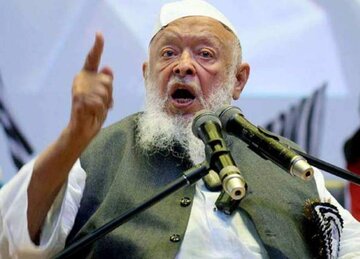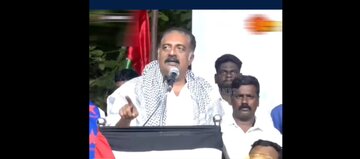AhlulBayt News Agency: The new legislation has sparked outrage among large sections of the Muslim community, who allege that the law is a direct attempt to interfere with and take control of Muslim religious and community-owned properties. Many view the move as an attack on their identity and heritage.
Protests turned violent on Friday in areas like Suti, Dhulian, Samserganj, and Jangipur. Several police vehicles were set ablaze, roads were blocked, and clashes broke out between protesters and security forces. In response, the administration imposed prohibitory orders under Section 163 of the Bharatiya Nagarik Suraksha Sanhita (BNSS) and suspended internet services in the affected regions, further escalating the sense of unrest.
A 21-year-old man, Ijaz Momin, who had sustained bullet injuries during Friday’s clashes at Sajur More in Suti, succumbed to his injuries on Saturday, adding to the grief and anger among locals. At least 18 policemen were also injured in the violence.
Police said raids are ongoing and more arrests are likely. Meanwhile, civil society groups and local leaders have alleged that the government is using excessive force to suppress any dissent against the law.
Director General of Police (DGP) Rajeev Kumar visited Samserganj on Saturday night to assess the situation and held a meeting with senior officers.
The Waqf (Amendment) Act has triggered deep anxiety and fear within the Muslim community, with critics arguing that the law not only undermines the autonomy of religious institutions but also opens the door for government control over Muslim assets.
As the crackdown continues, many are now questioning whether the democratic right to protest is being systematically silenced.






Your Comment